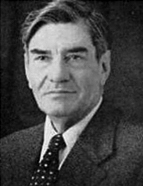

Cortesão also faced accusations of nationalism from some critics, who called for greater impartiality in his historical interpretations. However, his perceived exaggerations were rarely disputed. As a historian, he was influenced by the context of his time, which inevitably shaped some of his more ambitious theoretical ideas. Controversial topics, such as the Columbian question, Portuguese precedence, and the policy of secrecy, were endorsed by Cortesão from the 1930s onward and continued to feature in his later works, republished in Esparsos [Sporadic] and reiterated in O Mistério de Vasco da Gama [The Mystery of Vasco da Gama] .
Cortesão’s bibliographical legacy consists of approximately 300 works, primarily focused on cartography and the history of the Portuguese Discoveries, produced over more than sixty years. His interest in studying and researching topics related to navigation, overseas expansion, and their cartographic representation was particularly evident in his extensive exploration of contemporary documentation in major international archives. Notably, his work in editing cartographic sources (which included a substantial collection of documents) is particularly significant. His critical, rigorous, and factual analyses reshaped the understanding of Portuguese Renaissance cartography on the international stage, paving the way for alternative perspectives and historiographical approaches to overseas expansion.
